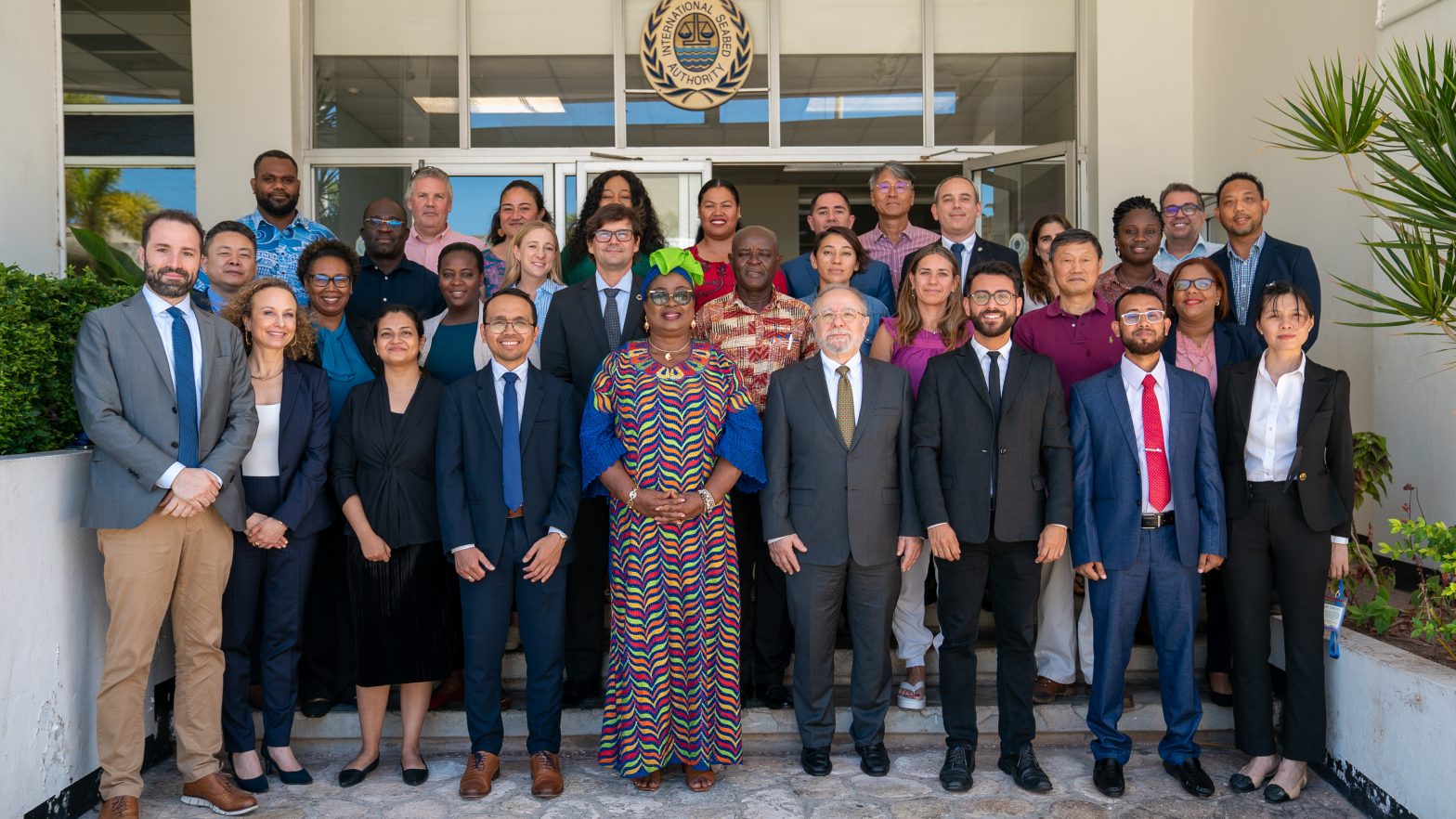The International Seabed Authority (ISA) successfully hosted two successive workshops organized with the United Nations Division for Ocean Affairs and the Law of the Sea (DOALOS) at ISA’s headquarters in Kingston, Jamaica, between 12 and 16 June 2023.
The workshops were organized in the framework of the third cycle (2021-2025) of the Regular Process for Global Reporting and Assessment of the States of the Marine Environment, including Socioeconomic Aspects. They involved over 30 participants with diverse expertise and backgrounds in ocean governance and the law of the sea, including policymakers and scientists from different countries, six representatives of small island developing States and two representatives of landlocked developing countries. The participants also included experts in deep-sea sciences who engaged in specific discussions on deep-sea mineral activities.
The first workshop focused on the Third World Ocean Assessment (WOA III). Scenario planning was used as a foresight tool to propose sustainability pathways for transformational change, enabling a sustainable ocean economy. Identifying future needs based on current understanding and technology and the use of interdisciplinary approaches were put forward as key requirements. Cross-cutting themes of equity, gender and traditional owner and local community knowledge to achieve inclusive ocean economies were discussed. Participants agreed that, despite progress, additional efforts are needed across different blue economy sectors. The preliminary outline and structure of the WOA III, Chapter 7 on Mineral resources, Section 5 on socio-ecological systems, was discussed. Sustainability pathways, pressure and impacts, social components and governance of mineral resources in areas beyond national jurisdiction were also discussed. The key messages and outputs generated will be summarized in a report that will be forwarded to the writing teams of the relevant chapters of the WOA III.
The second workshop specifically addressed the strengthening of the science-policy interface. DOALOS and several participants presented an overview of lessons learned from case studies at all levels. DOALOS also delivered lectures on the legal and institutional frameworks of ocean governance, the blue economy and blue finance. ISA presented how the best available science effectively informs its science-policy interface, for example, through the scientific criteria and evidence used in the design and location of areas of particular environmental interest within the regional environment management planning process.
Addressing the participants at the closing of the workshops, the Director of the Office of Environmental Management and Mineral Resources of ISA, Mr. José Dallo Moros, expressed his gratitude to DOALOS for the joint organization of both workshops. Mr. Dallo noted the progress made, especially in relation to the preliminary structure and outline of the chapter on mineral resources, which will pave the way for the other chapters. “It was a pleasure to also have deep-sea experts sharing their insights, including on the specific role of ISA in relation to the promotion and encouragement of marine scientific research in areas beyond national jurisdiction to continue advancing the general understanding and knowledge of the deep sea and its ecosystems,” he said.
In his closing remarks, Dr. François Bailet, Senior Legal Officer and Head of Capacity Building and Trust Funds, reiterated that DOALOS was also very pleased with the outcomes of the workshops. Dr. Bailet recognized the multidisciplinary backgrounds and the global spread of the participants enriched in-depth exchanges and discussions. “The importance of face-to-face lectures and discussions to reinforce capacity and mutual understanding are necessary to strengthen effective science-policy interface,” he concluded.
For media enquiries, please contact:
Ms. Stefanie Neno, Communications Specialist, ISA, sneno@isa.org.jm


